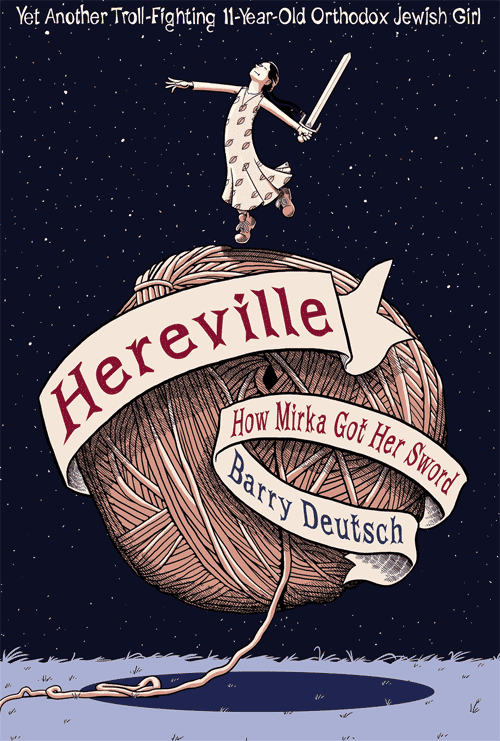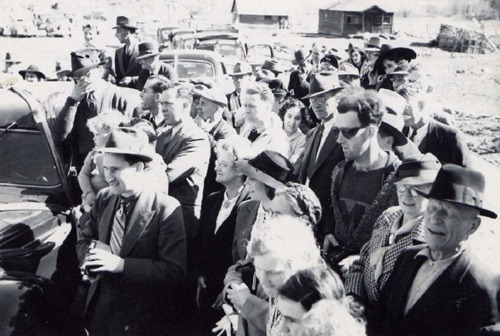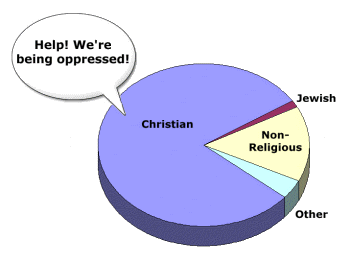There was a time when I was a libertarian, a long time ago when I was young and stupid. On the surface, it’s a seductive, simple idea: just get mean ol’ government out of the way, and then everyone can do what they want, man.
Of course, grow up a bit and you realize that mean ol’ government isn’t the only force keeping people from doing what they want, and indeed, mean ol’ government is sometimes the only thing that can give people a chance at what they want — public education, for all its troubles, is the greatest equalizer our society has ever created.
But that wasn’t the only reason I abandoned libertarianism as a philosophy. The other reason was that, quite simply, American libertarianism has a bit of a blind spot: it tends to forget that non-white, non-male people exist. This is why tea partiers — who cloak themselves in the mantle of libertarian rhetoric — can claim that we’re much less free now than we were when the founding fathers wrote the Constitution, ignoring the fact that over half of us couldn’t vote, and a huge percentage of us could be bought and sold.
To his credit, David Boaz of the Cato Institute recently wrote an article in Reason in which he took his fellow libertarians to task for failing to recognize these facts, for failing to recognize that while one can argue that white men are less free now than they were in 1776, it is ridiculous to argue that America as a whole is less free now, given that women, non-whites, and non-Christians all have more liberty today than they did at the dawn of the republic.
Now, I disagree with Boaz on parts of what he wrote, and agree with others — on the whole, it was pretty sensible — but I’m not going to get into his article. Instead, I want to talk about the reaction it engendered from Bryan Caplan, a self-described libertarian/anarchist professor of economics at George Mason University. (Yes, that’s a public university; why do you ask?)
Caplan responded that Boaz was mostly right, except about women. Women in 1880, you see, were totally free, or at the very least, a lot more so than they are today. Okay, maybe they couldn’t vote, but still….
In what ways, then, were American women in 1880 less free than men? Most non-libertarians will naturally answer that women couldn’t vote. But from a libertarian point of view, voting is at most instrumentally valuable.
Well, yes, insofar as a radical libertarian would be perfectly happy with an essentially anarchist system, run by a benevolent dictator who only ran a police force that patrolled against violent crime. But here in the real world, where voting is a citizenry’s check on government operations, voting is a pretty big deal.
Of course, Caplan assumes that just because women couldn’t vote, that didn’t mean the government didn’t treat them as second-class citizens:
Yet the fact that women were unable to vote in defense of their “basic liberty rights” doesn’t show that American political system denied them these rights. Did it?
Well, if you don’t count coverture, legal marital rape, draconian divorce laws, infidelity laws that punished women but not men, laws against contraception, a legally recognized system of bastardry, bans on cohabitation, a complete lack of any right of legal redress for damages against a spouse, or any of the other hundreds of laws and regulations that treated women and men differently, then no, I don’t suppose the American political system denied women rights. I mean, women had the right to breathe, for example. And eat, unless they were divorced by their husbands and cast into penury. But then, they had the freedom to starve! Liberty!
Caplan touches on coverture, and argues that women could get around it by signing prenuptual contracts. Cute, isn’t he? And stupid, since after marriage, the law gave men the right to change contracts entered into with their wives at a whim. Also, Caplan notes that women were totally free not to get married if they didn’t want to give up their right to make contracts or own property, which is a novel form of liberty that I don’t really understand as such.
Also, according to Caplan, modern marriages require give-and-take, which is exactly the same thing as a husband being able to forbid his wife to work. Because…something.
In closing, Caplan declares, “I know that my qualified defense of coverture isn’t going to make libertarians more popular with modern audiences. Still, truth comes first. Women of the Gilded Age were very poor compared to women today. But from a libertarian standpoint, they were freer than they are on Sex and the City.”
So, clearly, Caplan is a privileged fool. Only a man who has never for a second considered what it’s like to not be a man could write an article in which he declares that coverture is pretty much the same thing as fighting over the remote. And he ended up getting schooled by Will Wilkinson, who quotes Voltairine de Cleyre’s 1890 work Sex Slavery:
He beheld every married woman what she is, a bonded slave, who takes her master’s name, her master’s bread, her master’s commands, and serves her master’s passion; who passes through the ordeal of pregnancy and the throes of travail at his dictation, not at her desire; who can control no property, not even her own body, without his consent, and from whose straining arms the children she bears may be torn at his pleasure, or willed away while they are yet unborn.
Clearly, as de Cleyre so eloquently writes, women of the Gilded Age were not free in any way that anyone would define the term.
Now, Caplan had a choice. He could have admitted that he didn’t realize how robust the system of oppression was, how it worked so assuredly against women’s liberty, how it was, as Boaz rightly noted, proof that our nation’s past was not the libertarian utopia it is sometimes claimed to be.
Instead, Caplan doubled down, and wrote, if anything, a dumber article than the first:
There’s been a lot of pushback against my claim that women were freer during the Gilded Age than they are today. I’m standing my ground. Replies to leading criticisms:
1. I’m ignoring marital rape. To be blunt, this issue is almost entirely symbolic.
Wow. Yeah, marital rape: totally symbolic.
While it’s a heinous crime, I seriously doubt that more than a small fraction [sic] American women in 1880 worried about being raped by their husbands. And even if I’m dead wrong…
You are.
….the modern U.S. is scarcely better. Marital rape is now illegal in all 50 states, but it’s rarely prosecuted and leads to very few convictions. Marital rape convictions are so rare, in fact, that I couldn’t find any statistics; if you know of any, please post them.
It’s rarely prosecuted! Few people are convicted! Therefore, the laws against marital rape don’t matter! Well, that’s a relief. Of course, I didn’t know that libertarians judged criminal laws on the books as irrelevant, you know, ever in history. Also, the whole paragraph is completely wrong on the merits, as partner rape is still a serious issue even with it being illegal across the country.
One shudders to think what the rate was when sex was considered a good wife’s duty, and she not only lacked the right to refuse, but had the affirmative duty to submit. But I’m guessing it was more than a “small fraction” of women who feared rape by their husbands. It still is today.
2. Cohabitation was illegal too. […]
If cohabitation was vigorously prosecuted in 1880, this argument would be fairly convincing. But as far as I can tell, it was not. The only prominent examples of 19th-century enforcement on google were thinly-veiled attacks on Mormon polygamy. The laws might not have been as irrelevant as they are in modern Virginia (where they’re still on the books!), but even in 1880, they made little difference.
In Minnesota today, marijuana possession has been effectively decriminalized; it’s a petty misdemeanor to be caught with a small amount, and police efforts generally go toward combating dealers. Marijuana use is not vigorously prosecuted in my state.
And yet no libertarian — indeed, nobody — would argue that this makes the statutes against marijuana somehow irrelevant. The product is illegal. People caught with it have to, at the very least, pay a fine. Moreover, the fact that it’s illegal gives police the right to use simple marijuana possession as a pretext to do more extensive searches of people.
The fact that a law is on the books is prima facie evidence of a restriction of liberty. Prosecution statistics are irrelevant; the law’s existence, by itself, has a chilling effect on behavior. This isn’t some kind of novel argument; this is a cornerstone of libertarian philosophy.
But to Caplan, libertarian philosophy can be ignored when we’re talking about women.
3. You couldn’t contract around the contracting rule. As my old friend Jacob Levy puts it:
A prenuptial agreement could not make a married woman into a legal contractor.
From any even vaguely libertarian perspective, the inability to contract is a massive restriction of liberty.
This is a good example of the difference between the law and social reality. If a women in 1880 wanted to write a contract, I think she did the same thing a woman in 2010 would do – talk about it with her husband. If he refused, she did the same thing she’d do today: complain, argue, bargain, etc. A man in 1880 was legally allowed to make a contract without his wife’s approval, but in practical terms, his problem was the same as it is today: If your wife puts her foot down, it’s almost impossible to move forward.
In a similar vein, suppose a women in 1880 told her intended husband that she planned to keep working after the wedding, keep her income for herself, etc. If he later changed his mind, what could he actually do? About the same thing he’d do today – complain, argue, bargain, etc. If you want me to believe that coverture reduced women’s freedom, I want evidence that more than a handful of husbands in this situation turned to the law to extract their wives’ obedience.
This is, to put it mildly, as wrong as it can be. You want evidence that “more than a handful of husbands” turned to the law to control their wives? If even one husband turned to the law to control his wife, that’s proof that the system actively worked in a way that was injurious to liberty. When libertarians rightly note cases where cops raid a home by mistake, killing someone by accident, using the draconian anti-drug laws we’ve passed in the past few decades, nobody writes, “Well, show me more than an handful of people who’ve been killed by mistake, then I’ll believe you.” Even the handful is enough to prove the point, and a libertarian who viewed women as people would know that.
Caplan goes on, arguing that divorce laws only matter when a marriage is in imminent danger of dissolving (and ignoring that divorce laws in the 19th century were strongly tilted in a man’s favor), and that women’s liberties weren’t really affected by laws against fornication and contraception because, again, most women weren’t affected by them, and therefore none were.
This is, in a nutshell, the reason why I can’t be a libertarian. To be sure, there are libertarians who actually extend their belief system to all people. But too many men in the movement are concerned only with how laws affect white men like themselves.
The truth is that, in many ways (and the most important ways), we are freer as a society than we have been at any point in our history. Women have the right to work, to vote, to enter freely into contracts, to divorce their spouses on their own terms, to use (or not use) contraception, to have (or not have) an abortion, to marry (or not marry) as they see fit.
True, women today may pay a higher tax rate on their wages than they would have in 1883. But then again, women today can actually earn wages if they want to; it seems to me the latter is a bit more important to liberty than the former.









@Avvaa: I'm not sure even WASP male immigrants are welcome. There have been several tourists who have been detained because…